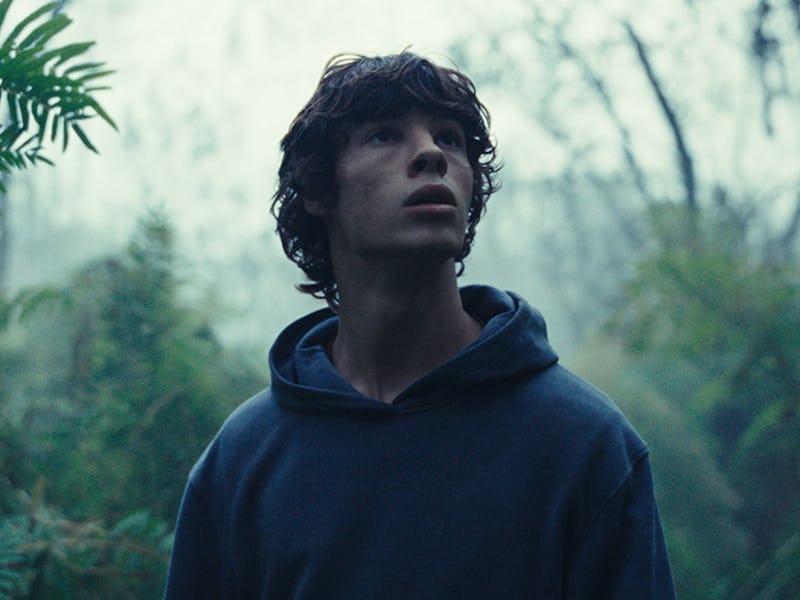The Animal Kingdom Takes Mutants Very Seriously
French Teen Wolf, hold the basketball.

Some sci-fi stories are so classic that they almost feel played out. A vampire romance, time-travel adventure, or Chosen One epic are so classic it’s hard to find room to say something new and interesting about the premise.
“Teenage boy finds himself morphing into a wolf” is definitely high on this list. Teen Wolf alone has taken the form of a handful of movies, a cartoon, a TV series, and a movie about that TV series. But this French film, available now on VOD, proves that there is still a new way to tell this story: with a deadly serious tone that serves its lofty message.
The Animal Kingdom follows Émile (Paul Kircher), a teenage boy living in a world where a part of the population has been infected with an illness that causes people to slowly morph into animals. There’s no explanation for where this disease came from or how the animal is determined, but that doesn’t matter.
Émile and his father François (Romain Duris) are trying to remain calm and contain some sort of normalcy despite the fact that François’ wife and Émile’s mother is one of these infected victims. They move to a new town to stay close to her while she’s in a government-sanctioned facility, but two events change everything.
First, Émile and François witness a bus full of “Critters” (as the infected are colloquially known) veer off the side of the road, releasing all its passengers — including Émile’s mother — into the wilderness. Second, Émile realizes he’s growing hair in strange new places in a way that can’t be attributed to puberty. In a gruesome scene, he uses tweezers to pull a canine claw from underneath his fingernails. Like his mother before him, he’s morphing into an animal.
The film takes its X-Men-style message of the superpowered being discriminated against, and treats it with the sincerity of any fledgling indie coming-of-age movie. Émile balances starting at a new school and navigating his new friends with hiding his mutations through more and more dire means. Meanwhile, his searches for his mother bring him face-to-face with Fix (Tom Mercier), a man halfway through his mutation into a bird who is attempting to learn how to fly.
Fix the bird/man in The Animal Kingdom.
Somehow, despite looking like the awkward third stage on an Animorphs book cover, Fix and Èmile form a fast friendship. Fix reassures Èmile that he can still live a full life as an animal, and Èmile reminds Fix of his humanity. Èmile’s wolf transformation forces a confrontation between him and his father, leading to a thrilling adventure that brings them face to face with the government’s oppressive control.
Somehow, the plot is able to fold in interesting characters that each take a moral stance on the rise of the mutants, excellently providing a range of viewpoints on the matter. One friend is a vegetarian trying to collect food for the animals, while another is incredibly wary of them — and suspicious of Èmile’s caginess. It replicates the usual debates found in movies in this subgenre, but with a sober lens that gives the issue more gravity.
While the story and acting are on par with the French movies you find in a Best International Feature Oscars category, the highlight is by far the visual effects. While Èmile’s wolf transformation effects are practical, CGI is used to bring chameleon girls, snake women, and strange spider-like mutants to life.
The Animal Kingdom isn’t aiming for the same audience as other morphing teen movies, but that’s exactly what makes it so great. Morphing into a wolf, bird, lizard, or any other creature isn’t a fun experience that makes for high-school drama or fun basketball sequences: it’s terrifying body horror. Finally, a movie realizes that fact. Growing up is one of the most confusing experiences humans go through. Growing into a wolf just takes that drama to the next level.